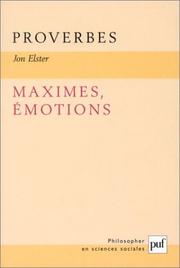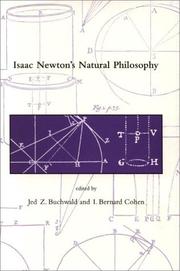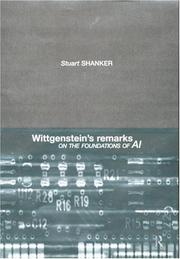| Listing 1 - 6 of 6 |
Sort by
|
Book

ISBN: 2379280258 2915699364 Year: 2017 Publisher: Toulouse : Presses de l’Université Toulouse Capitole,
Abstract | Keywords | Export | Availability | Bookmark
 Loading...
Loading...Choose an application
- Reference Manager
- EndNote
- RefWorks (Direct export to RefWorks)
Pour éviter les longueurs et l’ennui d’un colloque sur la propriété, nous avons cherché l’originalité et la difficulté en traitant plus particulièrement le phénomène de l’appropriation. Phénomène éternel et humain qui se double aujourd’hui d’une recherche de reconnaissance juridique et entraîne une multitude de nouvelles questions. Depuis plusieurs années l’évolution de la législation relative au droit des biens avait attiré notre attention. Il n’était pas question d’avoir une analyse statique de la propriété à la fin du XXe siècle et au début du XXIe siècle. Cette position paraissait inutile parce que de très nombreux travaux avaient été publiés en ce sens mais aussi parce que l’ensemble des collègues membres de notre groupe de réflexion avait le projet de revisiter la propriété pour en redécouvrir les éléments et la nature à travers leur analyse et leur expérience. Le défi était donc lancé de réfléchir sur la genèse de la propriété. Il était question de redécouvrir pourquoi une société consacre la propriété du droit de celui qui s’approprie une utilité. Il était aussi question de redécouvrir que notre système juridique assimile la propriété d’un droit à la propriété corporelle. Il fallait, en somme, étudier un phénomène social et économique essentiel : celui de l’appropriation, au sens où l’envisageait le doyen Carbonnier lorsqu’il écrivait que : « Toutes les choses ne sont pas des biens » et ajoutait « qu’il faut une possibilité d’appropriation pour faire un bien d’une chose ». Ce travail a permis de redécouvrir l’ambiguïté de notre droit des biens qui naît de l’idée que l’appropriation d’une chose se traduit par un droit sur un bien ou, encore, que le titulaire d’un droit peut prétendre à la propriété du droit. Mais le projet, bien qu’ambitieux, est réaliste car il permet de redécouvrir que les propriétés simultanées ne sont pas mortes et qu’une chose peut appartenir à plusieurs personnes qui en sont maîtres chacune de différentes manières. Au passage il…
Law --- autorisation --- mécanisme --- frontière --- maîtrise des biens --- usufruit

ISBN: 2130527442 9782130527442 Year: 2003 Publisher: Paris: PUF,
Abstract | Keywords | Export | Availability | Bookmark
 Loading...
Loading...Choose an application
- Reference Manager
- EndNote
- RefWorks (Direct export to RefWorks)
Emotions --- Mechanism (Philosophy) --- Mécanisme (Philosophie) --- Sociological aspects --- Aspect sociologique --- Mécanisme (Philosophie) --- CDL --- 159.9 --- Emotions in literature --- Feelings --- Human emotions --- Passions --- Psychology --- Affect (Psychology) --- Affective neuroscience --- Apathy --- Pathognomy --- Social aspects --- Choix (psychologie)
Book
ISBN: 9782802802235 2802802232 2802804928 Year: 2016 Volume: 144 Publisher: Bruxelles : Presses de l'Université de Saint-Louis,
Abstract | Keywords | Export | Availability | Bookmark
 Loading...
Loading...Choose an application
- Reference Manager
- EndNote
- RefWorks (Direct export to RefWorks)
Ce liber amoricum rassemble des contributeurs belges et européens qui témoignent de l'importance de l'oeuvre scientifique de J.-M. Cauchies dans les domaines du droit, des institutions et de la vie politique. Une vingtaine d'études explorent les mécanismes du gouvernement et de la législation dans divers pays du Moyen Âge à nos jours
Droit --- Histoire --- Gauchies, Jean-Marie, --- Law --- Legislation --- Judges --- Law, Medieval. --- Civilization. --- Judges. --- Law. --- Legislation. --- Politics and government. --- History. --- Europe, Western --- Europe. --- Europe, Western. --- History --- Cauchies, Jean-Marie, --- Belgium --- Belgique --- Administrative and political divisions --- Divisions politiques et administratives --- Cauchies, Jean-Marie --- droit --- hommage --- institution européenne --- vie politique --- mécanisme --- Europe --- History of the law --- History of Europe --- anno 800-1199 --- anno 1200-1799 --- anno 1800-1999
Book
ISBN: 9780521518925 052151892X 9780511596612 9781107405158 9780511596216 0511596219 9780511593154 0511593155 9780511595080 0511595085 1107405157 0511596618 1107191882 1282316559 9786612316555 0511595816 0511592221 Year: 2009 Publisher: New York : Cambridge University Press,
Abstract | Keywords | Export | Availability | Bookmark
 Loading...
Loading...Choose an application
- Reference Manager
- EndNote
- RefWorks (Direct export to RefWorks)
The modern view of causation can be traced back to the mechanistic science of Descartes, whose rejection of Aristotelian physics, with its concept of substantial forms, in favor of mechanical explanations was a turning-point in the history of philosophy. However the reasoning which led Descartes and other early moderns in this direction is not well understood. This book traces Descartes' groundbreaking theory of scientific explanation back to the mathematical demonstrations of Aristotelian mechanics and interprets these advances in light of the available arguments for and against substantial forms. It also examines how Descartes' new theory led him to develop a metaphysical foundation for his science that could avoid skeptical objections. It will appeal to a wide range of readers interested in the philosophy and science of the early modern period.
Mécanisme (philosophie) --- Forme (philosophie) --- Scolastique --- Mécanique --- Histoire --- Descartes, René, --- Critique et interprétation --- Form (Philosophy) --- Form (Philosophy). --- Mechanism (Philosophy) --- Scholasticism --- Theology, Scholastic --- Philosophy --- Philosophy, Medieval --- Mechanistic philosophy --- Philosophy, Mechanistic --- Biology --- Life (Biology) --- Materialism --- Naturalism --- Science --- Vitalism --- Idealism --- Matter --- Metaphysics --- Structuralism --- Descartes, René, --- Descartes, Renatus --- Cartesius, Renatus --- Descartes, René --- Mechanism (Philosophy). --- Scholasticism. --- Scolastique. --- Histoire. --- Critique et interprétation. --- Arts and Humanities --- Mécanisme (philosophie) --- Mécanique --- Critique et interprétation --- Descartes, Rene,

ISBN: 026226949X 0585475423 9780262269490 9780585475424 0262024772 9780262024778 0262524252 Year: 2001 Publisher: Cambridge, Mass. : MIT Press,
Abstract | Keywords | Export | Availability | Bookmark
 Loading...
Loading...Choose an application
- Reference Manager
- EndNote
- RefWorks (Direct export to RefWorks)
Newton studies have undergone radical changes in the last half-century as more of his work has been uncovered and more details of his life and intellectual context have come to light. This volume singles out two strands in recent Newton studies: the intellectual background to Newton's scientific thought and both specific and general aspects of his technical science. The essays make new claims concerning Newton's mathematical methods, experimental investigations, and motivations, as well as the effect that his long presence had on science in England.The book is divided into two parts. The essays in part I shed new light on Newton's motivations and the sources of his method. The essays in part II explore Newton's mathematical philosophy and his development of rational mechanics and celestial dynamics. An appendix includes the last paper by Newton biographer Richard W. Westfall, examining some of the ways that mathematics came to be used in the age of Newton in pursuits and domains other than theoretical or rational mechanics.
Science --- Sciences - General --- Physical Sciences & Mathematics --- History --- Newton, Isaac, --- Natural science --- Science of science --- Sciences --- Newton, Izaak, --- Niu-tun, --- Nʹi︠u︡ton, Isaak, --- Niutun, Yisake, --- Niyu̇ton, Isak, --- Nyuṭon, Ayzaḳ, --- Nyuṭon, Ayziḳ, --- ניוטאן, אייזאק, --- ניוטון, אייזק --- ניוטון, אייזיק --- 牛頓, --- 牛頓, 伊萨克, --- SCIENCE, TECHNOLOGY & SOCIETY/History of Science --- PHILOSOPHY/Philosophy of Science & Technology --- Natural sciences --- Mécanique céleste --- Dynamique --- Mécanisme (philosophie) --- Mouvement de translation (physique) --- Newton, Isaac --- Mécanique céleste --- Mécanisme (philosophie)

ISBN: 0415097940 9780415097949 0203049020 9780203049020 9781134859924 1134859929 9786610182640 6610182647 1280182644 0203302613 9781134859870 9781134859917 9780415408578 1134859910 9781280182648 9780203302613 Year: 1998 Publisher: London ; New York : Routledge,
Abstract | Keywords | Export | Availability | Bookmark
 Loading...
Loading...Choose an application
- Reference Manager
- EndNote
- RefWorks (Direct export to RefWorks)
Wittgenstein's Remarks on the Foundations of AI is a valuable contribution to the study of Wittgenstein's theories and his controversial attack on artificial intelligence, which successfully crosses a number of disciplines, including philosophy, psychology, logic, artificial intelligence and cognitive science, to provide a stimulating and searching analysis.
AI(Artificial intelligence) --- Artificial intelligence --- Artificial thinking --- Artificiële intelligentie --- Electronic brains --- Intellectronics --- Intelligence [Artificial ] --- Intelligence artificielle --- Intelligent machines --- Kunstmatige intelligentie --- Machine intelligence --- Thinking [Artificial ] --- Artificial intelligence. --- Cognition --- Mechanism (Philosophy) --- Mécanisme (Philosophie) --- Wittgenstein, Ludwig, --- Contributions in artificial intelligence. --- Cerveaux électroniques --- Machines intelligentes --- Pensée artificielle --- Mécanisme (Philosophie) --- AI (Artificial intelligence) --- Intelligence, Artificial --- Thinking, Artificial --- Bionics --- Cognitive science --- Digital computer simulation --- Electronic data processing --- Logic machines --- Machine theory --- Self-organizing systems --- Simulation methods --- Fifth generation computers --- Neural computers --- Wei-tʻe-ken-ssu-tʻan, --- Wei-tʻe-ken-ssu-tʻan, Lu-te-wei-hsi, --- Wittgenstein, L. --- Vitgenshteĭn, L., --- Wei-ken-ssu-tʻan, --- Pitʻŭgensyutʻain, --- Vitgenshteĭn, Li︠u︡dvig, --- Weitegenshitan, --- Wittgenstein, Ludovicus, --- Vitgenshtaĭn, Ludvig, --- ויטגנשטיין, לודוויג --- 维特根斯坦, --- Wittgenstein, Ludwig --- Contributions in artificial intelligence --- Wittgenstein, Ludwig, - 1889-1951 - Contributions in artificial intelligence. --- Wittgenstein, Ludwig Josef Johann,
| Listing 1 - 6 of 6 |
Sort by
|

 Search
Search Feedback
Feedback About UniCat
About UniCat  Help
Help News
News